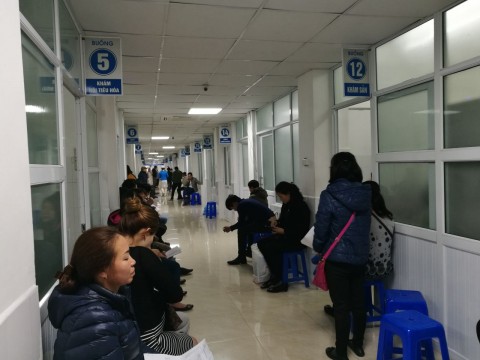Tisha B'Av Fasting Tips
Fasting is never easy. For Jews, there are two significant fast days that everyone tries to uphold – Yom Kippur and Tisha B'Av. Around 40% of Israeli Jews fast the entire day of Tisha B'Av.
Tisha B'av usually occurs during the summer. Israeli summers are very hot with temperatures reaching over 100 degrees Fahrenheit (38 degrees Celsius), with high humidity and no clouds. The hot weather makes fasting dangerous because of the risk of overheating and dehydration. Most Israelis can recall stories of someone fainting from the heat while fasting.
The Risk of Dehydration
Your body requires a daily minimum amount of fluid. Everyday actions such as taking, walking, breathing, sweating, and moving result in a loss of fluid that is not being replaced in the day. Our everyday actions cause the body to deplete stored glycogen from muscles and the liver — these are the carbohydrates our bodies store to provide quick energy. After the ‘quick energy’ is used our bodies start to break down protein within muscles and fat to produce energy. During this process, the body's metabolism slows down to conserve energy. This also explains why people do not keep any weight off from a fast! Meanwhile, hormonal reactions will fluctuate.
The genuine dangers of dehydration can even lead to low blood pressure and cardiac arrest! Here are EMA Care guidelines for safe fasting in Israel:
- Starting 24 hours before the fast begins, drink plenty of liquids, so your body's cells are well hydrated. Avoid caffeine/lemons/lemon juice. Lemons are a natural diuretic and will result in the loss of fluids more quickly.
- Before the fast, don't eat salty foods because it will make you very thirsty. So, try to avoid snacks like potato chips and pretzels.
- Eat pineapple at your final meal before the fast begins! Pineapple contain the enzyme bromelain, which promotes good digestion. Furthermore, pineapple reduces the feeling of hunger.
- Eat foods with plenty of fibre. Fibre will keep you fuller longer. We also advise people to eat fruits and vegetables with a lot of water. This will keep your body hydrated. These fruits and vegetables include watermelon, chickpeas, and grapes.
- Minimize physical exercise during the fast. Walking long distances, especially in the heat, is not recommended.
- Recognize the danger signs of dehydration. If you experience
- extreme weakness
- heart palpitations
- dizziness
- fainting
If you experience these symptoms - notify local doctors or medics so you can be examined and treated. If vomiting, fever, confusion, or chest pains occur you must go to the emergency room immediately.
The most important thing is not to put yourself at risk! EMA Care’s recommendations are an easy way to stay safe while fasting.
EMA Care wishes you a meaningful and safe fast day. Remember - by taking care of your physical well-being. You will be able to achieve the spiritual goals of this very holy day.
When you subscribe to the blog, we will send you an e-mail when there are new updates on the site so you wouldn't miss them.







